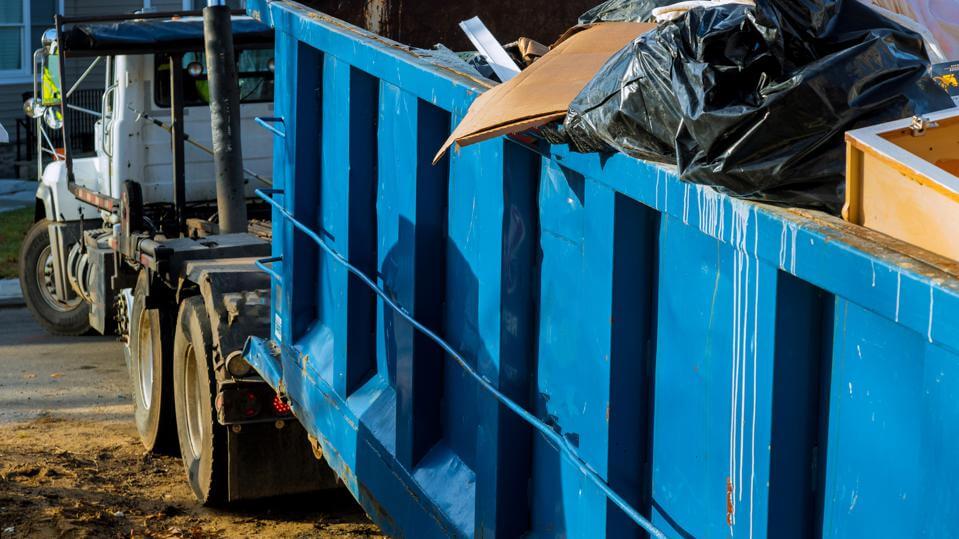Commercial Waste Collection by Industry: What UK Businesses Need to Know
Every business generates waste, but it’s essential to remember that not all waste is the same. Depending on your sector, the type and volume of commercial waste can vary significantly — and so should your collection and disposal solution.
Choosing an industry-specific commercial waste collection service can not only help you stay compliant with regulations but also reduce your business’s overall environmental impact and save on disposal costs.
1. Retail & E-Commerce Waste Management
There’s no doubt that retailers generate large volumes of packaging, general waste, and recyclable materials.
Common waste types include:
- Cardboard and paper
- Plastic packaging
- Food waste (if selling perishables)
- General waste from customer areas
Best practices:
- Use dry-mixed recycling collections.
- Separate cardboard and plastic to maximise rebates.
- Schedule collections around peak trading periods (e.g. seasonal sales).
2. Hospitality, Pubs & Restaurants
The hospitality sector generates significant amounts of food waste, glass bottles, and mixed recyclables.
Common waste types include:
- Food waste and kitchen scraps
- Glass bottles and jars
- General rubbish and packaging
- Cooking oils (liquid waste)
Best practices:
- Use segregated bins for food, glass, and general waste.
- Arrange for licensed oil waste collection.
- Consider daily or bi-weekly collections to avoid odours and overflow.
3. Offices & Co-Working Spaces
Although low in hazardous waste, there is no doubt that office environments generate a consistent stream of paper, packaging, and electronic waste.
Common waste types include:
- Paper, cardboard, and printer cartridges
- Plastic and cans
- Food and drink packaging (from break rooms)
- IT and electrical equipment (WEEE)
Best practices:
- Introduce clearly labelled bins for recycling.
- Partner with a provider offering confidential shredding and WEEE disposal.
- Encourage staff engagement in recycling initiatives.
4. Construction & Trade Businesses
This sector generates high volumes of bulky and hazardous waste that must be disposed of in a responsible manner.
Common waste types include:
- Rubble, bricks, and plasterboard
- Wood, metals, and plastics
- Paints, solvents, and hazardous materials
- Packaging waste
Best practices:
- Hire the right-sized skips or roll-on roll-off bins for heavy waste.
- Separate waste streams to reduce landfill charges.
- Use licensed carriers for the disposal of hazardous waste.
5. Healthcare & Care Facilities
Due to the sensitive nature of healthcare waste, strict regulations apply, so it’s imperative that this is disposed of correctly to avoid any cross contamination and hefty fines.
Common waste types include:
- Clinical waste and sharps
- Sanitary and hygiene waste
- Hazardous materials (chemicals, pharmaceuticals)
- Paper, plastic, and food waste from staff/patients
Best practices:
- Segregate hazardous and general waste.
- Use colour-coded bins and adhere to guidelines for healthcare waste.
- Ensure licensed, compliant operators collect waste.
6. Education & Schools
Schools, colleges, and universities generate a mix of general waste, recyclables, and occasionally hazardous materials from their laboratories.
Common waste types include:
- Paper, books, and cardboard
- Food waste from cafeterias
- Cleaning products and chemicals
- IT and electrical waste (WEEE)
Best practices:
- Create recycling stations in classrooms and communal areas.
- Schedule frequent pickups during term time.
- Arrange for secure IT equipment disposal at end-of-life.
7. Manufacturing & Industrial Facilities
Manufacturers often produce large volumes of process and packaging waste, including regulated waste types.
Common waste types include:
- Packaging (plastics, cardboard, pallets)
- Scrap metal and offcuts
- Hazardous waste (chemicals, oils, solvents)
- General operational waste
Best practices:
- Conduct a waste audit to identify opportunities for improvement in disposal.
- Separate hazardous waste for safe disposal.
- Select a waste partner with expertise in industrial waste management.

Why Industry-Specific Waste Services Matter
- Stay compliant – Different industries are subject to different waste regulations.
- Save money – Tailored waste collection reduces unnecessary pickups and landfill costs.
- Boost sustainability – Industry-specific recycling helps reduce your environmental footprint.
- Protect brand reputation – Proper waste management demonstrates to customers and clients that you care about your environmental impact.
Final Thoughts: Choose the Right Waste Solution for Your Industry
Every business has unique waste disposal needs, which is why it’s crucial to conduct thorough research and partner with a provider that has experience and a strong reputation for disposing of waste specific to your industry. It doesn’t matter if you work in retail, hospitality, healthcare, or construction; there will be a customised commercial waste service that can help you stay compliant, save money, and operate more sustainably.
💡 Ready to compare commercial waste providers for your industry? Utilise our service to obtain free, no-obligation quotes and discover the ideal waste solution for your business.
